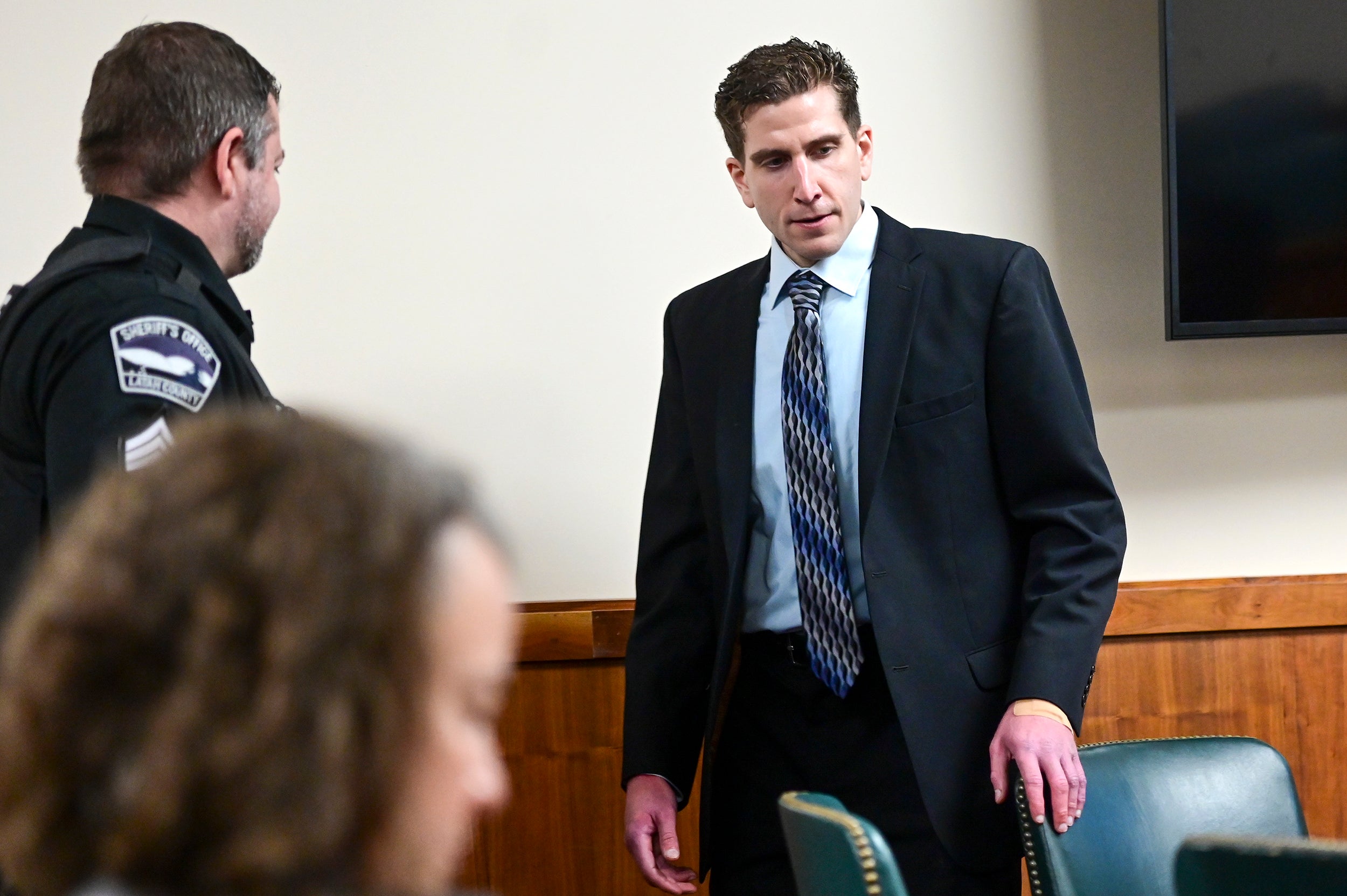Bryan Kohberger asks for more time to decide whether to give alibi for Idaho murders
Kohberger filed a motion in Latah County Court saying that his legal team needs more time due to the wealth of evidence in the high-profile case
Accused killer Bryan Kohberger has asked a judge for more time to decide whether to offer an alibi for the murders of four University of Idaho students.
The 28-year-old criminology PhD student filed a motion in Latah County Court on Friday saying that his legal team needs more time due to the wealth of evidence in the high-profile case.
The evidence so far handed over by state prosecutors “includes thousands of pages of discovery, thousands of photographs, hundreds of hours of recordings, further many gigabytes of electronic phone record and social media data,” the court documents state.
This “voluminous” discovery process is “still ongoing” so to decide whether or not to submit a formal alibi would be “at a minimum, premature as wading through the extensive information that makes up the case is incomplete”.
“The defense needs time to make this determination and consider evidentiary rules,” the filing states.
Under Idaho law, defendants have 10 days to provide a written statement about where they claim to have been at the time of the alleged crime and offering information about any witnesses who can support their claim.
On 23 May – one day after he was arraigned on four murder charges – Latah County Prosecutor’s Office put in a demand for Mr Kohberger’s notice of alibi.
Now, Mr Kohberger’s attorneys are asking for an extension to the timeframe or, failing that, for a hearing for them to present their arguments.
Judge John Judge is yet to issue a ruling on the motion.

Mr Kohberger is scheduled to stand trial on 2 October for the murders of Kaylee Goncalves, 21, Madison Mogen, 21, Xana Kernodle, 20, and Etham Chapin, 20, after he was indicted by a grand jury on four counts of first-degree murder and one burglary charge.
Mr Kohberger is accused of breaking into an off-campus student home on King Road in the early hours of 13 November and stabbing the four students to death with a large, military-style knife.
Two other female roommates lived with the three women at the property and were home at the time of the massacre but survived.
One of the survivors – Dylan Mortensen – came face to face with the masked killer, dressed in head-to-toe black and with bushy eyebrows, as he left the home in the aftermath of the murders, according to the criminal affidavit.
For more than six weeks, the college town of Moscow was plunged into fear as the accused killer remained at large with no arrests made and no suspects named.
Then, on 30 December, law enforcement suddenly swooped on Mr Kohberger’s family home in Albrightsville, Pennsylvania and arrested him for the quadruple murders.
The motive remains unknown and it is still unclear what connection the WSU PhD student had to the University of Idaho students – if any – prior to the murders.
However, the affidavit, released in January, revealed that Mr Kohberger’s DNA was found on a knife sheath left behind at the scene of the murders.
It also revealed that his white Hyundai Elantra was caught on surveillance footage close to the crime scene.
New details have emerged since about what was found during an initial search of his apartment in Pullman and a rental storage unit.
The court documents show that two items found in his apartment – a mattress cover on the bed and an uncased pillow – tested positive for blood.
The documents do not reveal who the blood belongs to.
Investigators also seized a string of other items from his home including possible human and animal hair strands, a disposable glove and a computer.
Meanwhile, the murder weapon – a fixed-blade knife – has still never been found.
As a criminal justice PhD student at WSU, Mr Kohberger lived just 15 minutes from the victims over the Idaho-Washington border in Pullman.
He had moved there from Pennsylvania and began his studies there that summer, having just completed his first semester before his arrest.
Before this, he studied criminology at DeSales University – first as an undergraduate and then finishing his graduate studies in June 2022.
While there, he studied under renowned forensic psychologist Katherine Ramsland who interviewed the BTK serial killer and co-wrote the book Confession of a Serial Killer: The Untold Story of Dennis Rader, the BTK Killer with him.
He also carried out a research project “to understand how emotions and psychological traits influence decision-making when committing a crime”.
He is facing life in prison or the death penalty for the murders that have rocked the small college town of Moscow and hit headlines around the globe.



